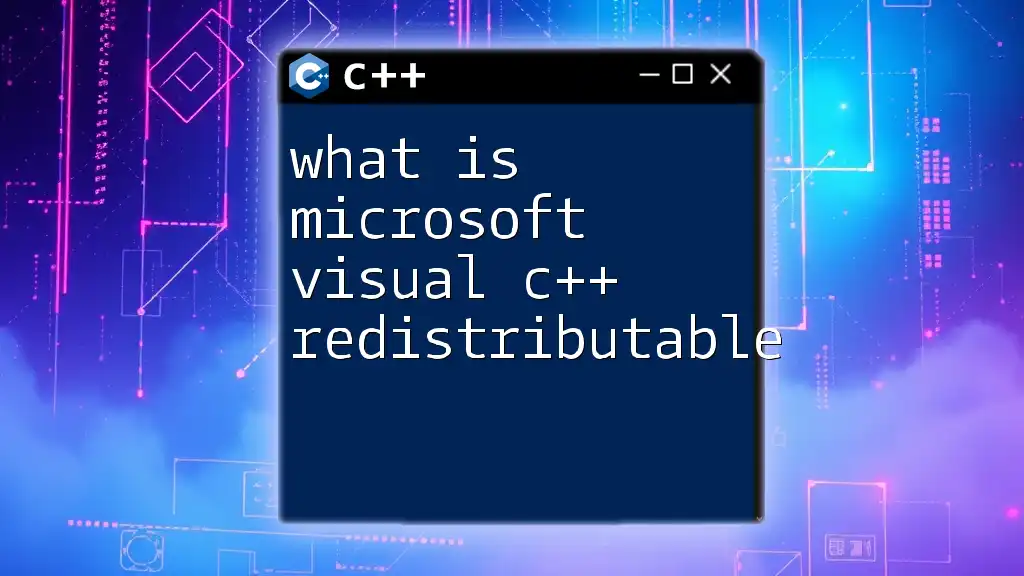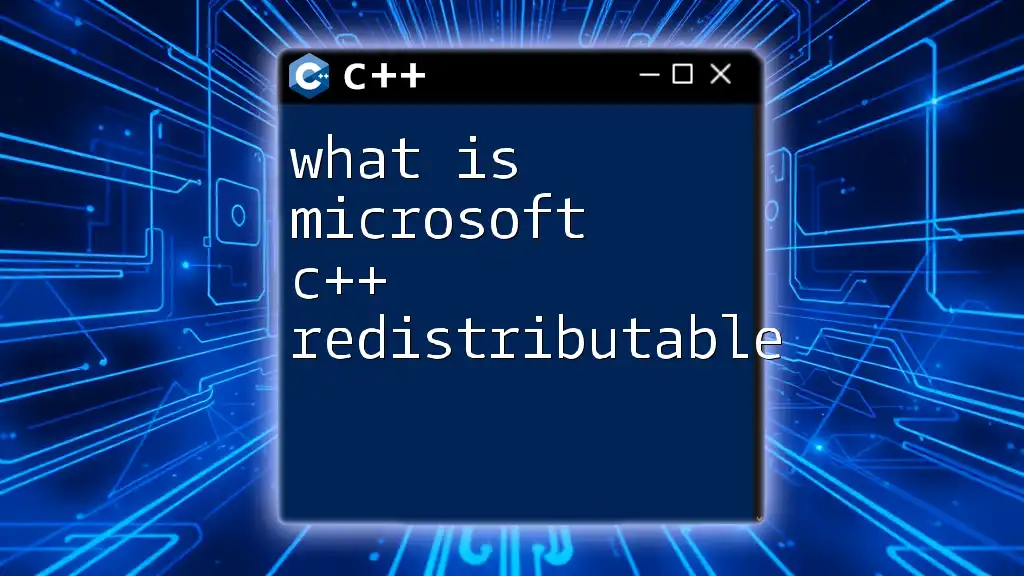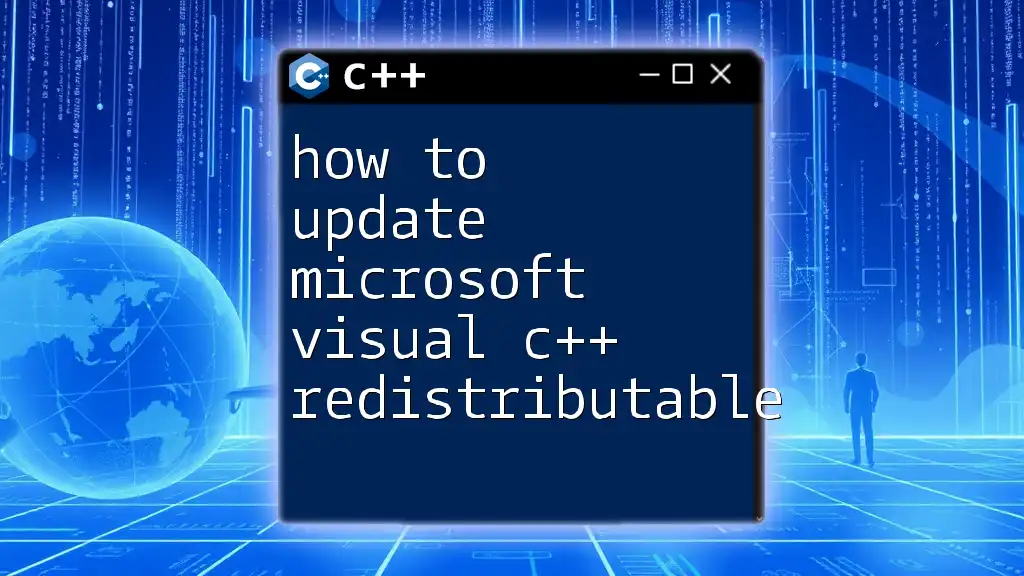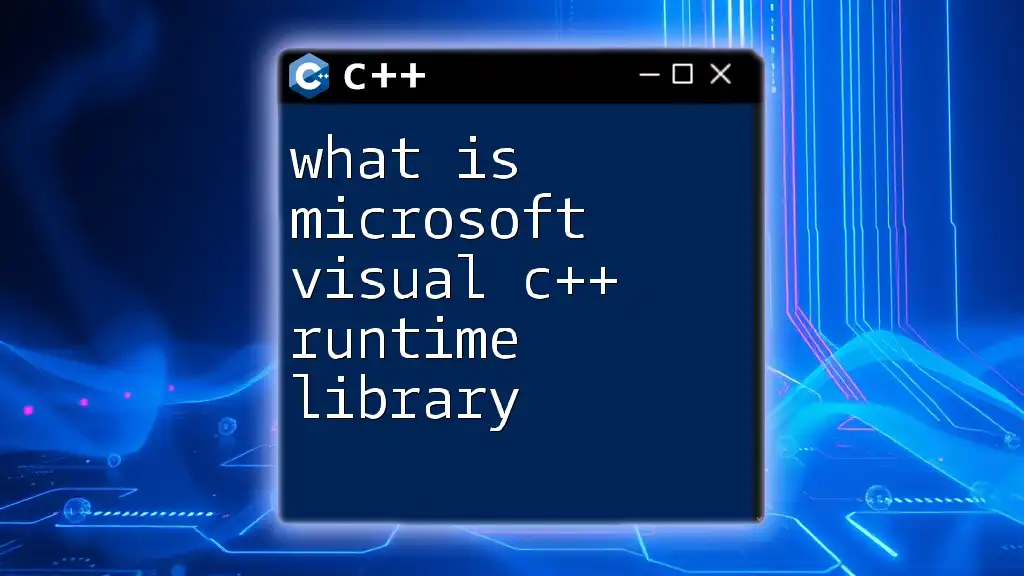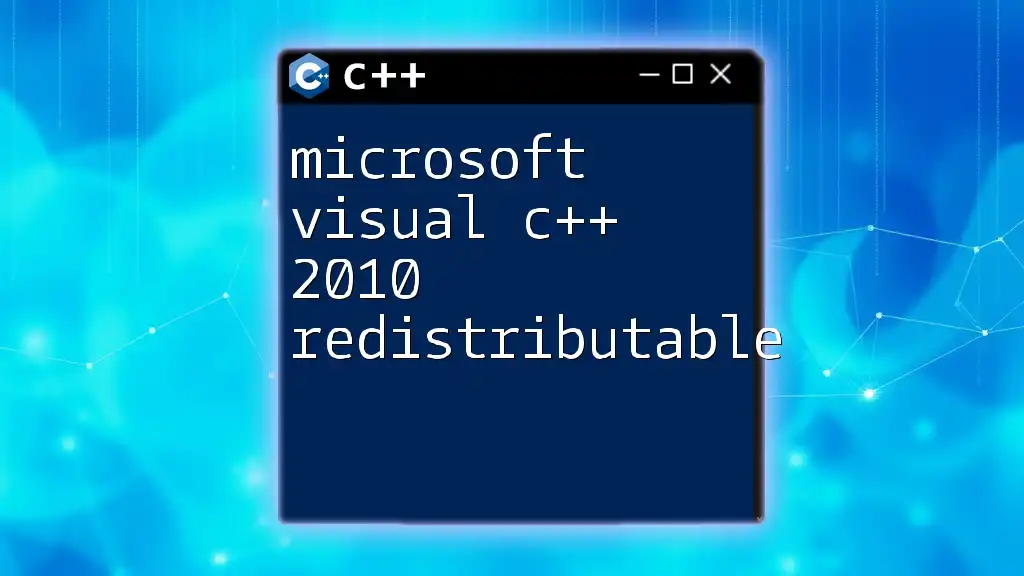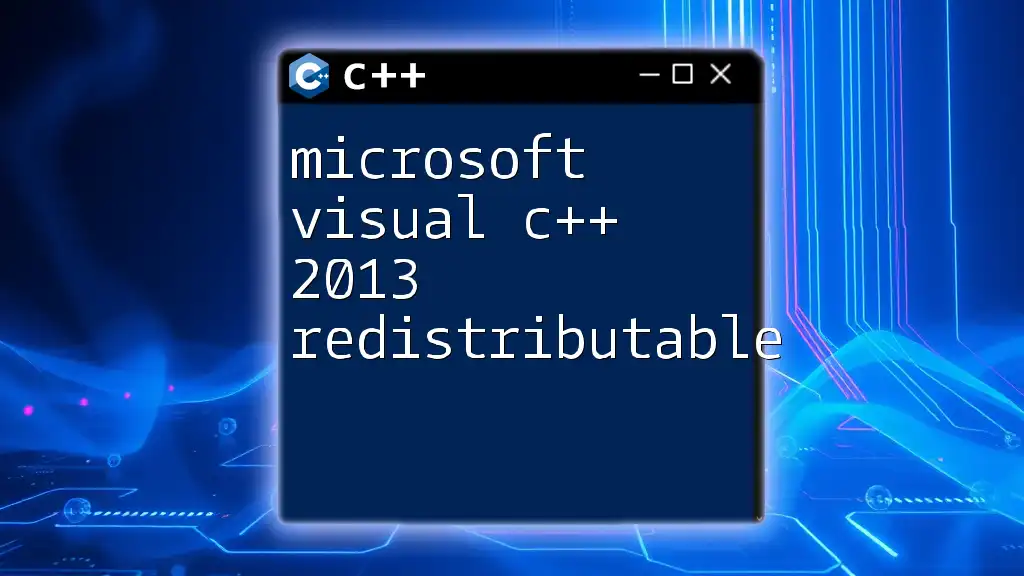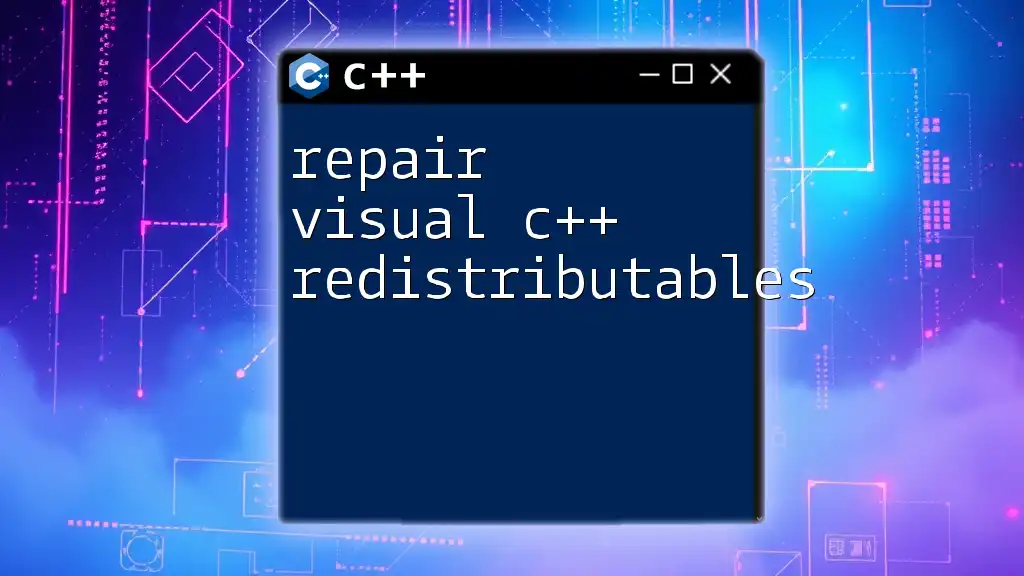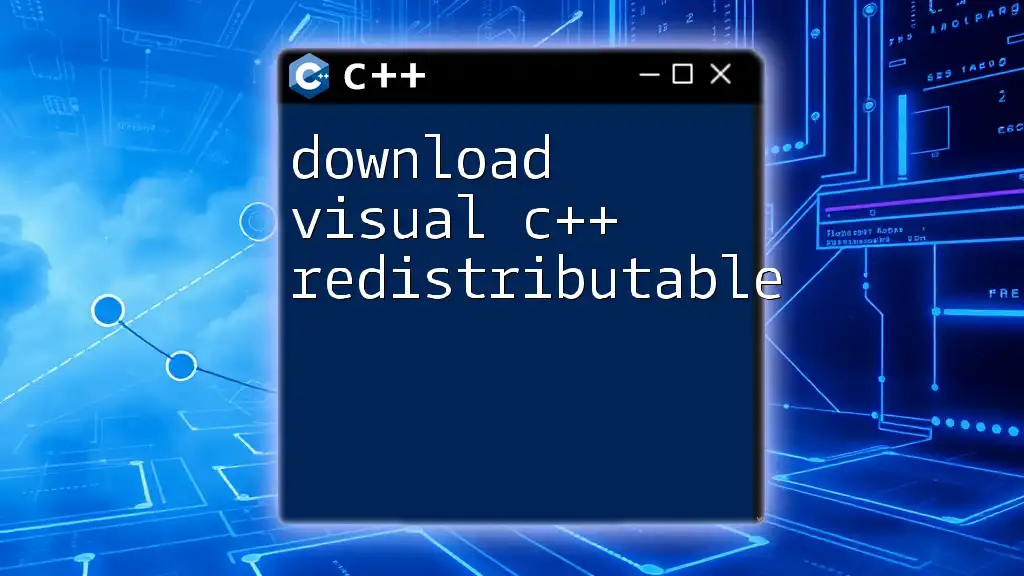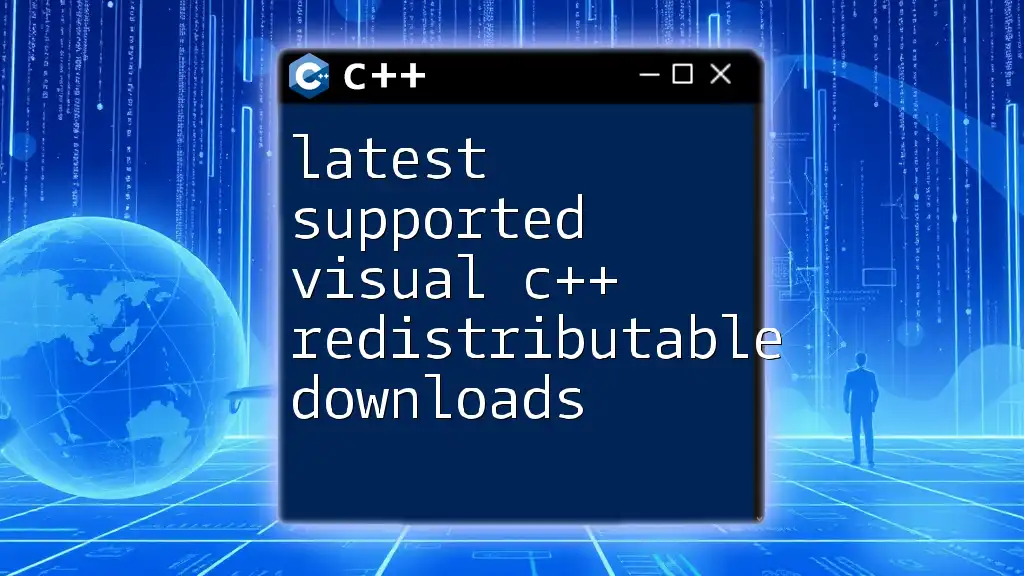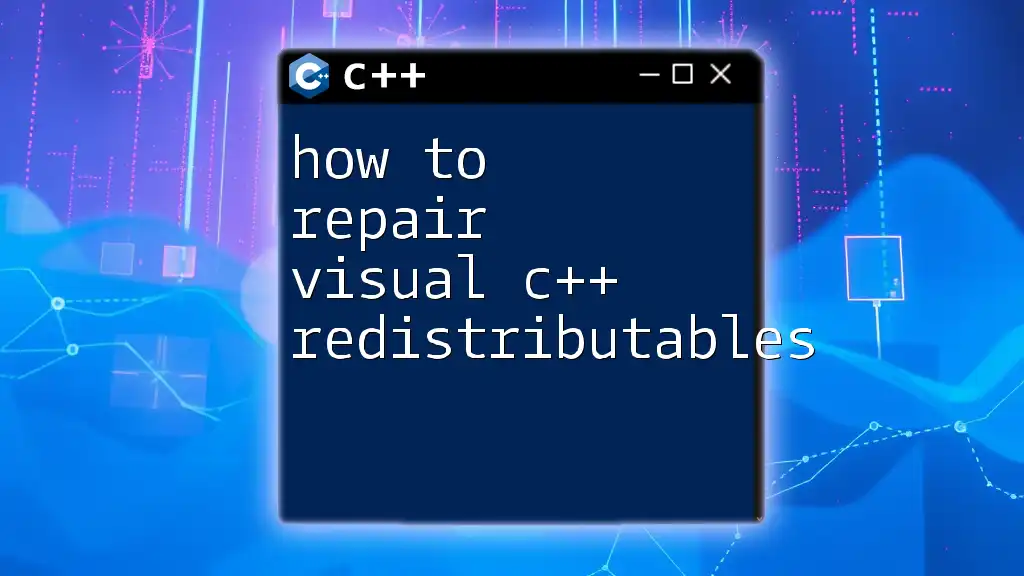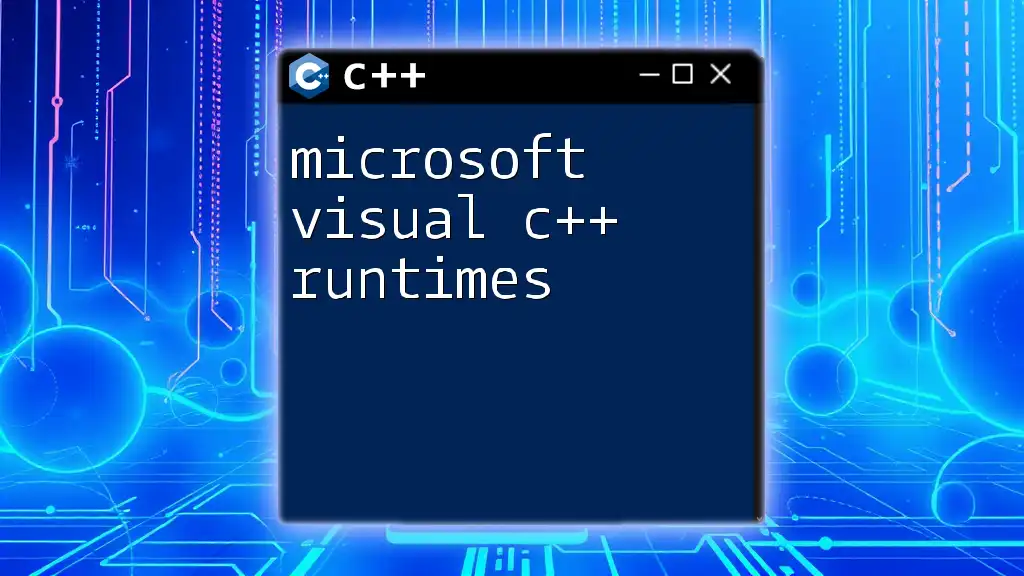The Microsoft Visual C++ Redistributable is a package that installs the necessary runtime components for running applications developed with Microsoft Visual C++, ensuring that the required DLL files are available on the system.
#include <iostream>
int main() {
std::cout << "Hello, World!" << std::endl;
return 0;
}
Understanding the Basics
What is Microsoft Visual C++?
Microsoft Visual C++ (MSVC) is an integrated development environment (IDE) from Microsoft for the C++ programming language, providing developers with the tools necessary to create robust and high-performance applications. MSVC is part of Microsoft's Visual Studio suite, offering a range of features such as advanced code editing, debugging, and performance profiling.
Key features of Visual C++ include:
- Comprehensive Development Tools: From code editing to debugging and performance analysis, MSVC provides all tools in one package.
- Integration with .NET Framework: It allows for the development of Windows applications that can take advantage of the vast .NET libraries.
- Support for Multiple Platforms: MSVC allows developers to create applications for a variety of Microsoft platforms, including Windows desktop and cloud services.
The evolution of MSVC has made it a pivotal tool in the software development landscape. Starting from its early versions, Visual C++ has expanded to include modern language features, libraries, and frameworks, keeping it relevant as programming paradigms evolve.
What is a Redistributable?
In software development, a redistributable is a package that includes various components and libraries required for running certain applications. When developers create a software application using Visual C++, they may rely on certain shared code and libraries that must be present on the target machine for the application to function correctly. This is where redistributables come into play.
The key differences between redistributables and static libraries are:
- Redistributables: Dynamically linked libraries that applications can share and utilize, reducing the disk space required for deployments. They are installed once and can be used by multiple applications.
- Static Libraries: Compiled code that is included directly into an application during the build process, resulting in larger executable files and no shared use.
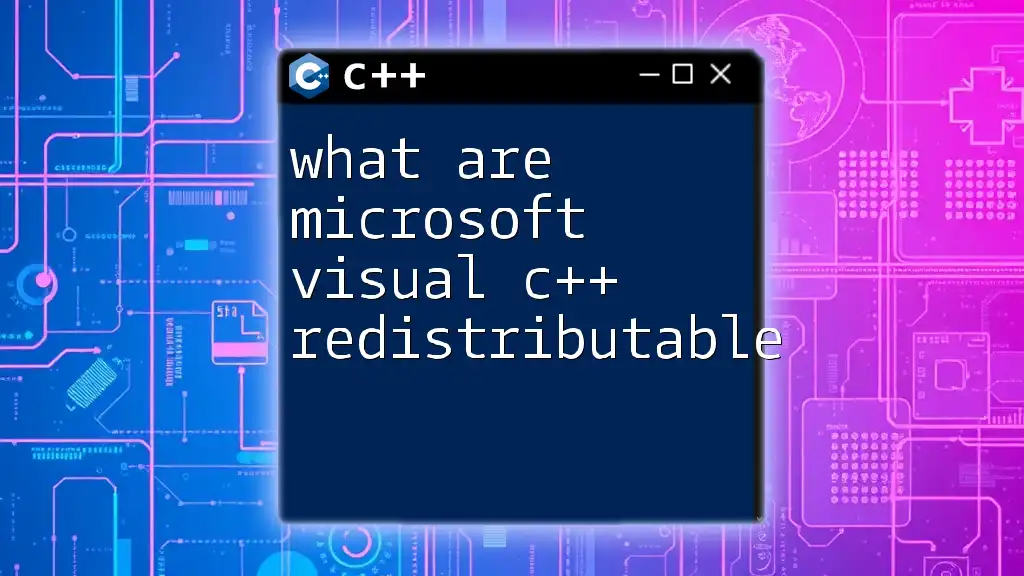
Deep Dive into Microsoft Visual C++ Redistributable
Purpose and Functionality
Understanding what Microsoft Visual C++ Redistributable is necessitates appreciating its purpose. This package is essential when an application built with Visual C++ depends on specific runtime components.
Common scenarios in which the redistributable is needed include:
- Installing a game or graphical application that utilizes C++ libraries.
- Running business software that has been developed in C++.
- Executing applications from third-party vendors that don’t include these dependencies in their installation package.
The redistributable ensures that all necessary runtime components are in place, allowing the application to execute without complications.
Components of the Redistributable
The Microsoft Visual C++ Redistributable is composed of several core libraries that are essential for running C++ applications. Some of these components include:
-
C Runtime (CRT): This library provides functions for performing tasks such as input/output processing, memory management, and string manipulation.
Example of utilizing CRT function in code:
#include <iostream> int main() { std::cout << "Hello, World!" << std::endl; return 0; } -
Microsoft Foundation Classes (MFC): These libraries support the development of client applications for Windows with sophisticated user interfaces.
-
C++ Standard Library: It includes features such as algorithms, iterators, and containers.
The inclusion of these libraries allows developers to create applications that can take full advantage of the capabilities provided by the C++ language.
Versioning
Another critical aspect of Microsoft Visual C++ Redistributable is versioning. There are multiple versions of the redistributable tailored to various versions of Visual C++, which means that applications built with different versions may require their corresponding redistributable.
Understanding versioning is crucial for:
- Backward Compatibility: Newer versions of the redistributable may not include the features needed by older applications.
- Upgrading: When upgrading, developers need to ensure that their applications are compatible with the new redistributable version or maintain an older version alongside to support legacy applications.
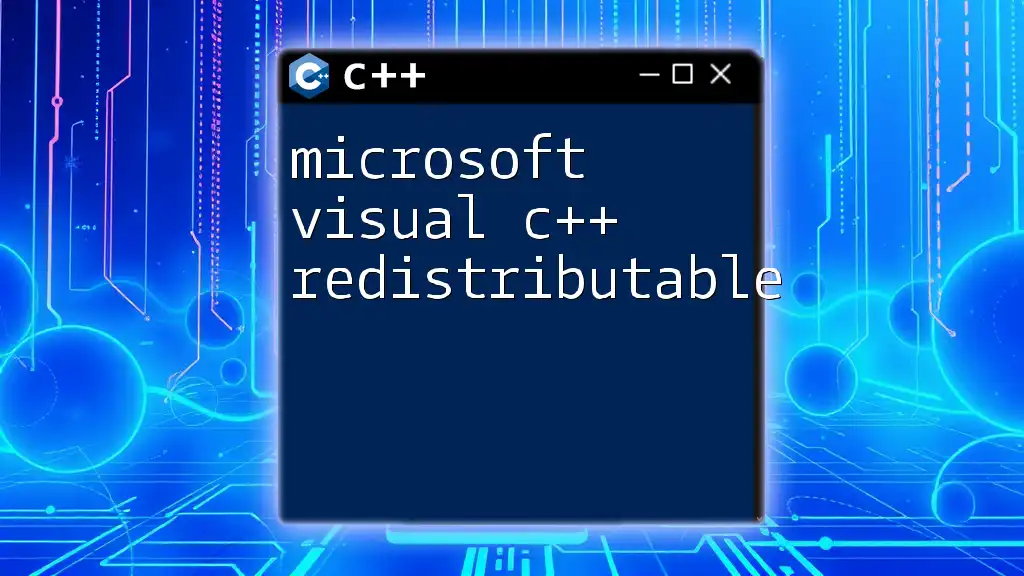
Installation Process
How to Install Microsoft Visual C++ Redistributable
Installing the Microsoft Visual C++ Redistributable is a straightforward process. Here is a step-by-step guide:
- Download: Visit the official Microsoft [website](https://support.microsoft.com/en-us/help/2977003/the-latest-supported-visual-c-downloads) to find the appropriate version for your operating system.
- Run the Installer: Once downloaded, execute the installer.
- Follow Prompts: Follow the on-screen instructions, agreeing to terms and conditions, and complete the installation process.
After installation, it’s recommended to check for the successful installation by navigating to the "Programs and Features" section of the Control Panel.
Common installation issues you may encounter include:
- Error Codes: These codes could indicate problems ranging from a lack of necessary permissions to conflicting installations.
- Missing Dependencies: Sometimes, other required software components may be absent.
Uninstalling the Redistributable
There are occasions when you may need to uninstall the redistributable, such as when troubleshooting.
To uninstall the Visual C++ Redistributable:
- Navigate to Control Panel: Open “Programs and Features”.
- Select the Redistributable: Locate the specific version you wish to uninstall.
- Click Uninstall: Follow the prompts to complete the process.
Be mindful that uninstalling the redistributable may impact installed applications that depend on it, potentially causing them to fail.
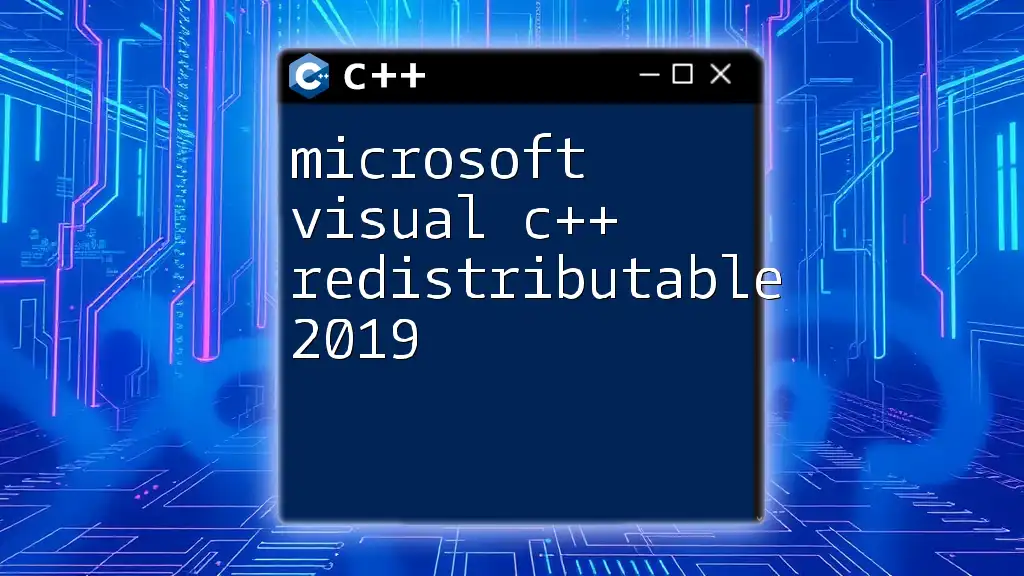
Best Practices
Ensuring Compatibility
Ensuring your application’s compatibility with the installed version of Microsoft Visual C++ Redistributable is vital. Developers can check for the installed versions using tools like `regedit` or by inspecting the “Programs and Features” list.
Updating the Redistributable
Keeping the redistributable up-to-date minimizes security risks and maximizes stability. Consider the following best practices for updates:
- Automatic Updates: Leverage Windows Update to receive the latest versions of redistributables.
- Manual Checks: Periodically visit the Microsoft website to check for new releases that may include critical updates or fixes.
Troubleshooting Common Issues
Despite best practices, issues may still arise. Common problems include:
- Missing DLL Errors: If an application reports missing DLL files, reinstalling the appropriate redistributable version may resolve the issue.
- Compatibility Issues with Windows Versions: Developers should be aware of the Windows version a target application is running, as this can influence redistributable requirements.
Using tools like Dependency Walker can help diagnose the specific components that an application requires, simplifying the troubleshooting process.
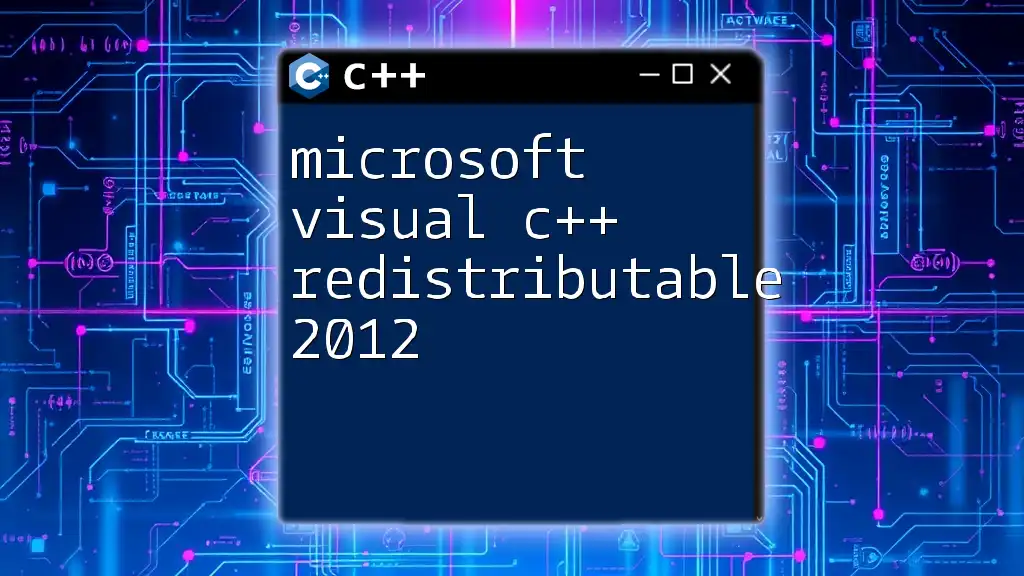
Use Cases
Examples of Applications Utilizing Visual C++ Redistributable
Many popular applications depend on Microsoft Visual C++ Redistributable, further emphasizing its importance. Examples include:
- Adobe Creative Cloud products, which rely on C++ for optimized graphics processing.
- Video Games that utilize complex algorithms for rendering and physics calculations, showcasing how critical these libraries are in high-performance scenarios.
Case Studies: Users frequently report encountering issues when these redistributables are missing, underlining their essential role in maintaining the functionality of complex software applications.
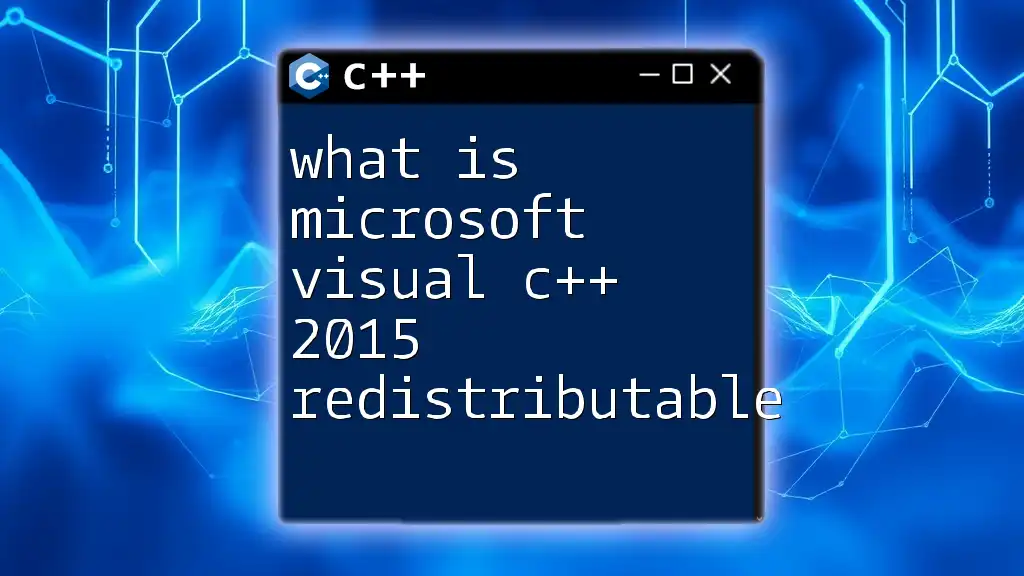
Conclusion
In summary, understanding what Microsoft Visual C++ Redistributable entails is crucial for both developers and users alike, as it plays a pivotal role in the deployment and execution of C++ applications. By ensuring proper installation, version management, and troubleshooting, you can enhance your experience with software relying on this vital component.
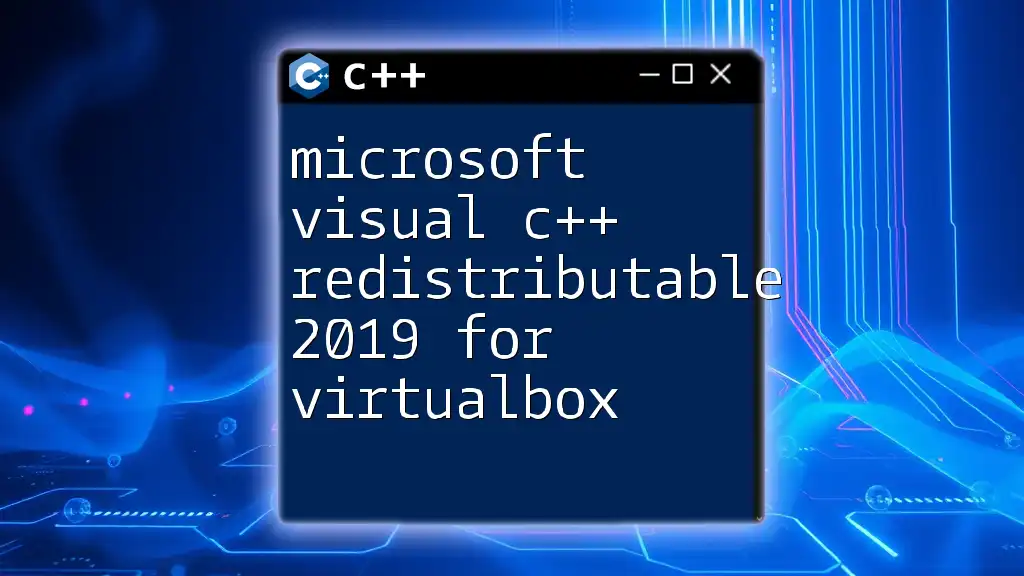
Additional Resources
For further reading and resources, consider exploring:
- Microsoft's official documentation for precise and updated information.
- Tutorials available on platforms like YouTube and developer forums.
- Community forums where you can seek assistance and ask questions related to Microsoft Visual C++ Redistributable.

